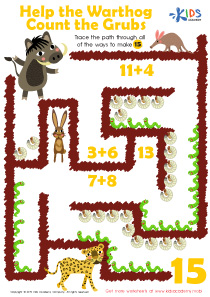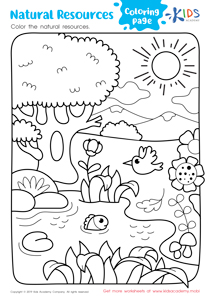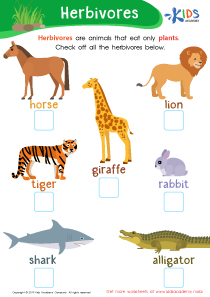Mental math skills Normal Kindergarten Worksheets
3 filtered results
-
From - To
Boost your child's cognitive abilities with our Mental Math Skills Normal Kindergarten Worksheets from Kids Academy! Designed for ages 4-6, these engaging worksheets help young learners master foundational math skills through fun, interactive activities. Each sheet focuses on enhancing quick thinking, number recognition, and basic arithmetic, fostering confidence and a love for learning. Bright, colorful illustrations and simple instructions make the learning process enjoyable and rewarding. Perfect for daily practice, our worksheets supplement classroom teachings and prepare your child for future academic success. Explore our collection now to give your kindergartener a head start in mental math proficiency!
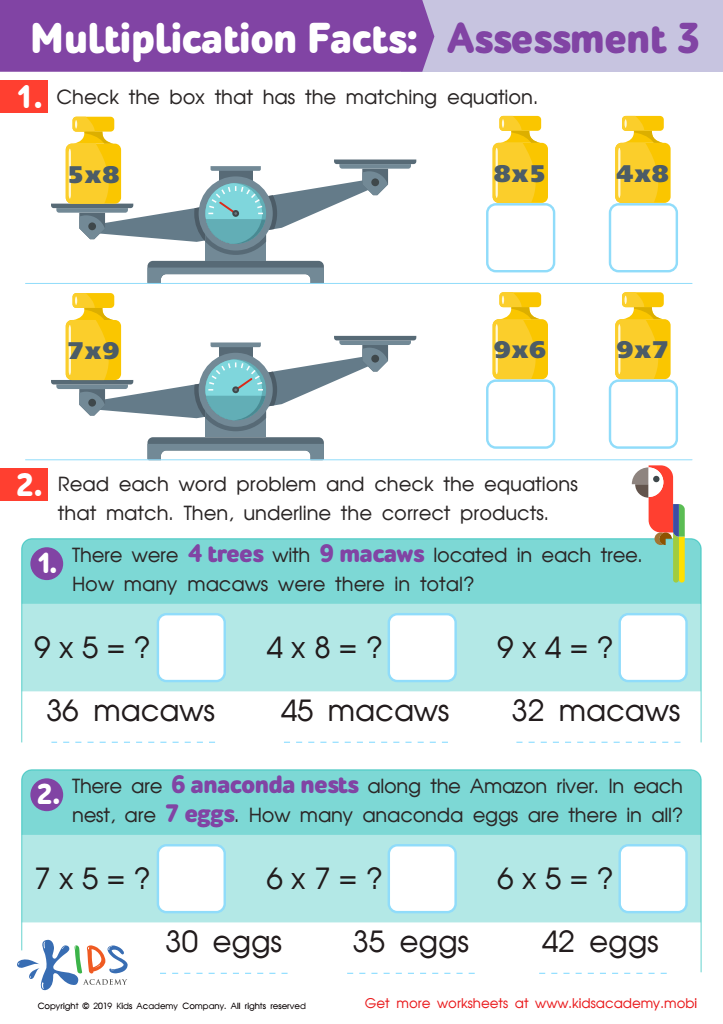

Multiplication Facts: Assessment 3 Worksheet
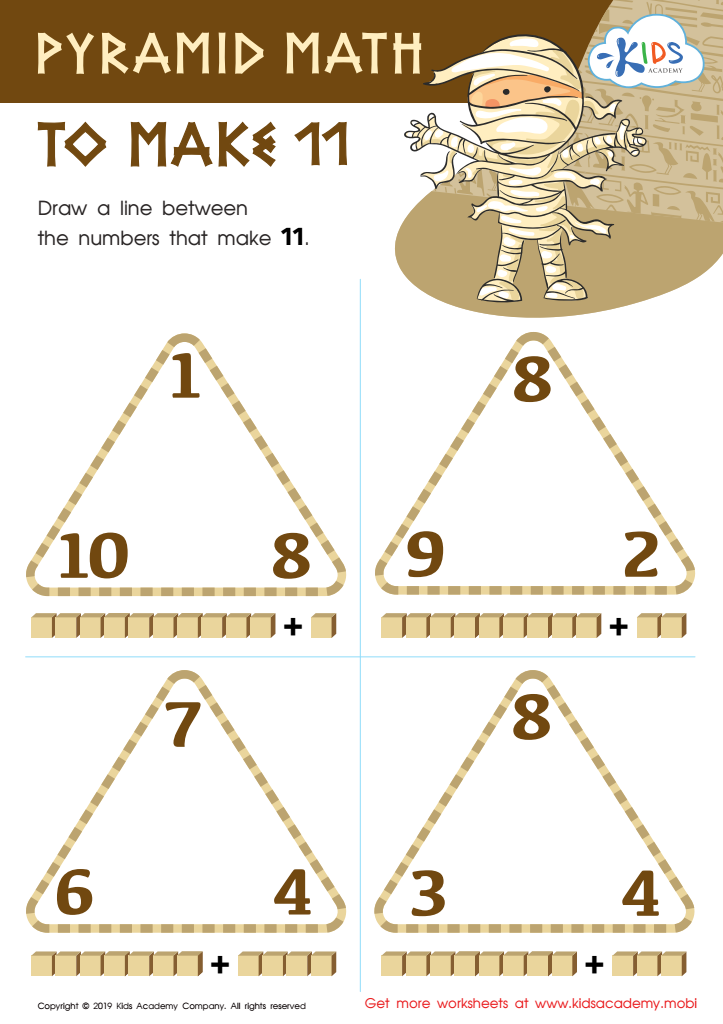

Pyramid Math to Make 11 Worksheet
Parents and teachers should care about developing mental math skills in kindergarten children because these foundational capabilities significantly impact overall cognitive and academic growth. Mental math nurtures number sense, which is the ability to recognize, understand, and work with numbers flexibly. For young learners, this translates to better comprehension of basic math concepts like addition, subtraction, and understanding quantities, which are essential building blocks for later mathematical learning.
Moreover, mental math encourages problem-solving skills, critical thinking, and logical reasoning. These abilities are not only crucial for succeeding in mathematics but also for navigating various real-life situations. For example, children with strong mental math skills can more easily understand time, make quick estimations, and manage money, all of which are everyday tasks they will encounter as they grow.
Additionally, engaging in mental math activities can boost a child's confidence and develop their persistence. Children who feel capable in math are more likely to participate actively in classroom settings, contributing to a positive learning environment. Early exposure to mental math also helps in identifying any learning difficulties promptly, allowing for timely interventions and support.
Hence, focusing on mental math in kindergarten is an investment in a child's academic future and overall intellectual development. Parents and teachers can foster a love for math through fun, engaging activities, promoting a positive and confidence-building learning experience.

 Assign to My Students
Assign to My Students

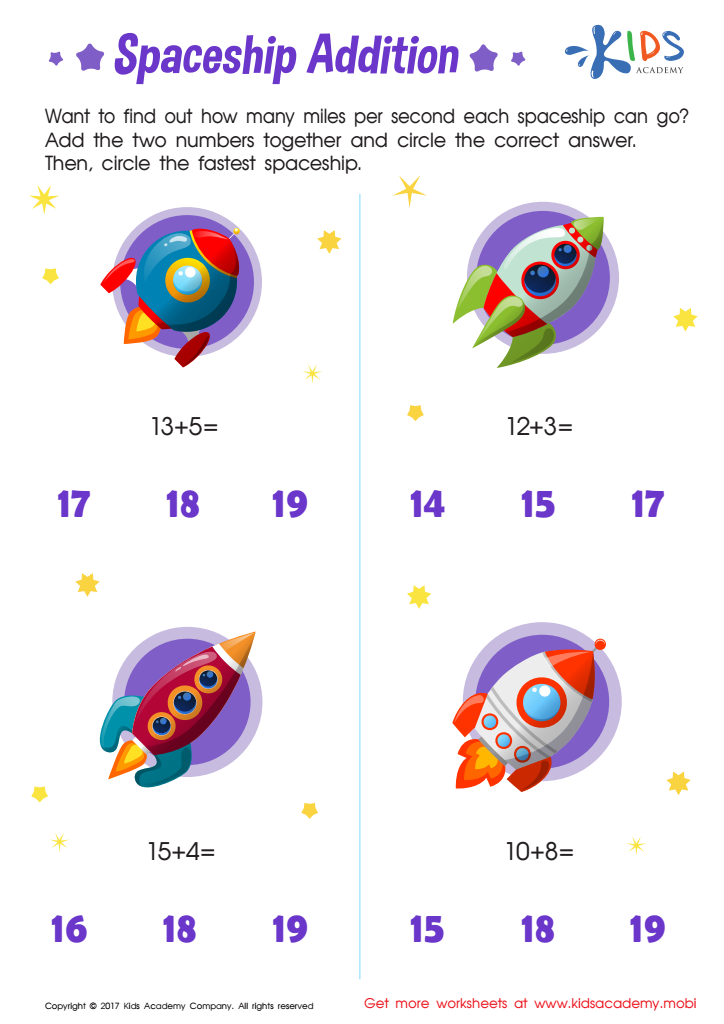








.jpg)

